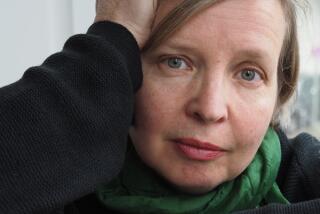Spectrum of Sad Love Songs From a Masterful Winbergh
- Share via
The only thing that the great Lieder composers relished more than a love song was a sad love song. It is tension, after all, that animates a cycle such as Schumann’s “Dichterliebe,” and it was tension in all its aspects that Gosta Winbergh examined so mesmerizingly Monday evening, making intimate Raitt Hall at Pepperdine University paradise enough for song lovers.
The concert was a benefit for the fledgling Flora L. Thornton Opera Program. Winbergh has a son enrolled at Pepperdine, and the Swedish tenor came down between performances of “Idomeneo” in San Francisco for a weekend master class and this recital.
And for the students in attendance, the recital must have seemed like the logical extension of a master class--a master performance. “Dichterliebe”--”Poet’s Love”--is a sort of pocket drama in 16 tiny scenes, and Winbergh played them all with fully engaged, articulate and expressive verve. Working from an almost conversational base, he explored realms of rage and delirium, of sorrow and loss, of cold, savage humor and fleeting joy, and in as many voices.
Schumann’s songs emerged naturally from the context of his short character piano pieces, and it is the piano that binds up “Dichterliebe” with epilogues that distill the emotional essences of the songs. Peter Grunberg played with abiding taste and supportive point, but also no fear of asserting the important issues that fell to him and the keyboard.
As if to assure us that love need not be as bleak as “Dichterliebe,” Winbergh came back after intermission with Richard Strauss’ “Wie sollten wir geheim.” He reminded us in short order that he is a Wagnerian as well as a Mozartean tenor, shaking the room with the rush of exuberant rapture. Three more Strauss songs and three by Sibelius took us through more expressions of love, varied in spirit but hewing to the dark side of the force more often than not.
More love songs, by Strauss and Grieg, turned up in encore, plus the aria “Un furtiva lagrima,” sung with as much passion and voice as any other tenor and more honest musicality than most.
More to Read
The biggest entertainment stories
Get our big stories about Hollywood, film, television, music, arts, culture and more right in your inbox as soon as they publish.
You may occasionally receive promotional content from the Los Angeles Times.










